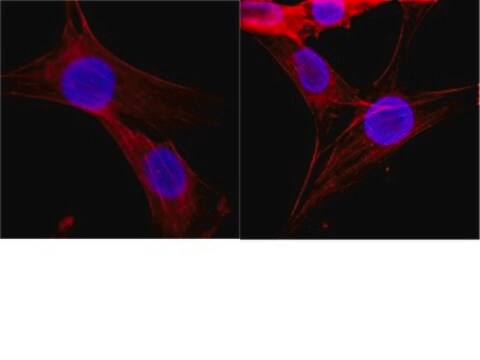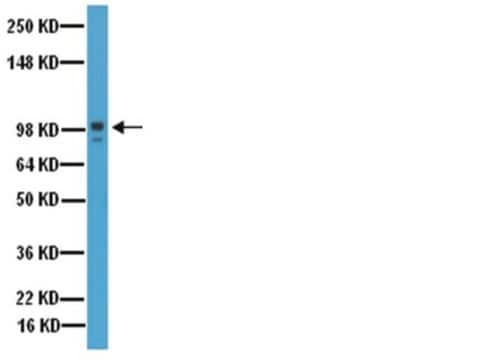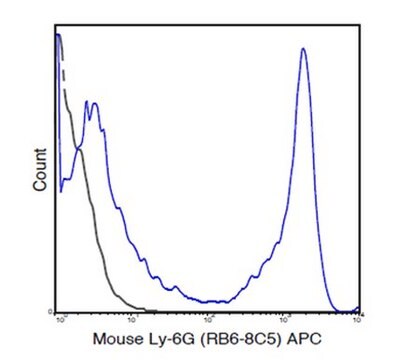MABE284
Anti-MSH2 Antibody, clone FE11
clone FE11, from mouse
Synonym(e):
DNA mismatch repair protein Msh2, hMSH2, MutS protein homolog 2
About This Item
Empfohlene Produkte
Biologische Quelle
mouse
Qualitätsniveau
Antikörperform
purified immunoglobulin
Antikörper-Produkttyp
primary antibodies
Klon
FE11, monoclonal
Speziesreaktivität
human
Methode(n)
immunohistochemistry: suitable
western blot: suitable
Isotyp
IgG1κ
NCBI-Hinterlegungsnummer
UniProt-Hinterlegungsnummer
Versandbedingung
wet ice
Posttranslationale Modifikation Target
unmodified
Angaben zum Gen
human ... MSH2(4436)
Allgemeine Beschreibung
Spezifität
Immunogen
Anwendung
Epigenetik & nukleäre Funktionen
Zellzyklus, DNA-Replikation & -Reparatur
Qualität
Western Blot Analysis: 1 µg/mL of this antibody detected MSH2 in 10 µg of SW-480 cell lysate.
Zielbeschreibung
Physikalische Form
Lagerung und Haltbarkeit
Hinweis zur Analyse
SW-480 cell lysate
Sonstige Hinweise
Haftungsausschluss
Sie haben nicht das passende Produkt gefunden?
Probieren Sie unser Produkt-Auswahlhilfe. aus.
Lagerklassenschlüssel
12 - Non Combustible Liquids
WGK
WGK 1
Flammpunkt (°F)
Not applicable
Flammpunkt (°C)
Not applicable
Analysenzertifikate (COA)
Suchen Sie nach Analysenzertifikate (COA), indem Sie die Lot-/Chargennummer des Produkts eingeben. Lot- und Chargennummern sind auf dem Produktetikett hinter den Wörtern ‘Lot’ oder ‘Batch’ (Lot oder Charge) zu finden.
Besitzen Sie dieses Produkt bereits?
In der Dokumentenbibliothek finden Sie die Dokumentation zu den Produkten, die Sie kürzlich erworben haben.
Unser Team von Wissenschaftlern verfügt über Erfahrung in allen Forschungsbereichen einschließlich Life Science, Materialwissenschaften, chemischer Synthese, Chromatographie, Analytik und vielen mehr..
Setzen Sie sich mit dem technischen Dienst in Verbindung.








